-
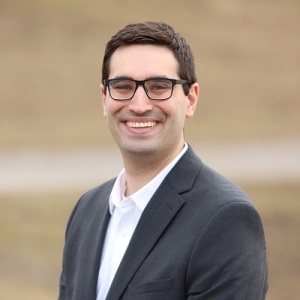
Justin Lee Andrews
Massachusetts Institute of Technology, United States -
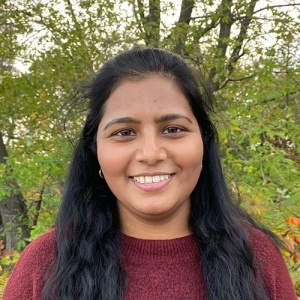
Sivani Baskaran
Norwegian Geotechnical Institute, Norway -
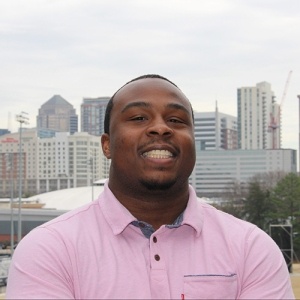
Isaiah Borne
University of Liverpool, United Kingdom -
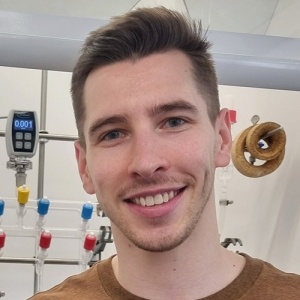
Andryj Borys
Universität Bern, Switzerland -
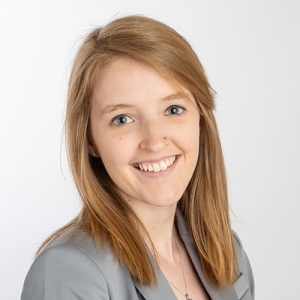
Kimberly Carter-Fenk
Stanford University, United States -
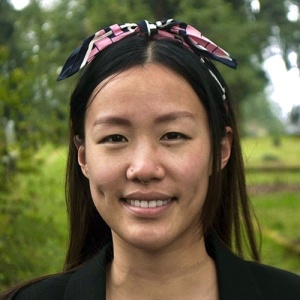
Alison Sy-min Chang
University of Oregon, United States -
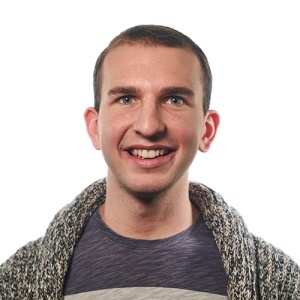
Ty Christoff-Tempesta
University of Delaware, United States -
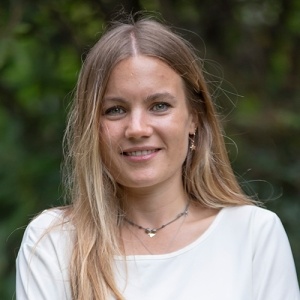
Eleonora Comeo
University of Nottingham, United Kingdom -
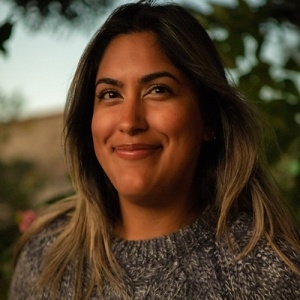
Roxana Coreas
University of California, Berkeley, United States -
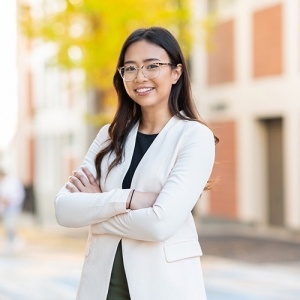
Cintya Dharmayanti
University of South Australia, Australia -
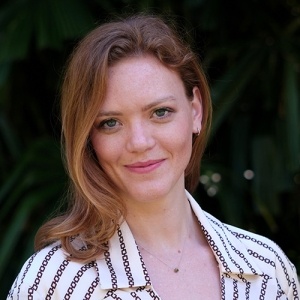
Katharina Ehrmann
Technische Universität Wien, Austria -
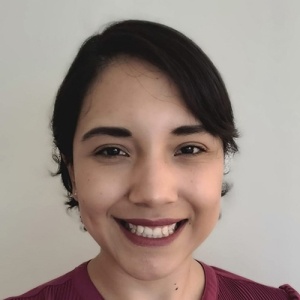
Ana Cristina Garcia Alvarez
University of California, Irvine, United States -
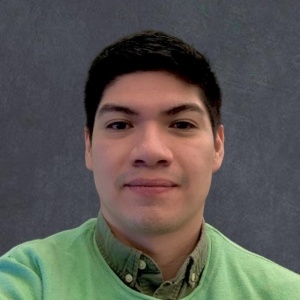
Diego Gomez-Maldonado
Northeastern University, United States -
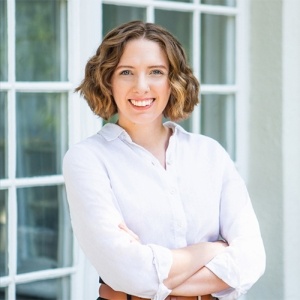
Mallory Green
Fritz Haber Institute of the Max Planck Society, Germany -
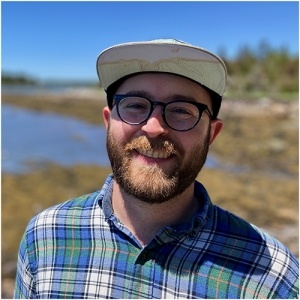
Bryan D. James
Woods Hole Oceanographic Institution, United States -
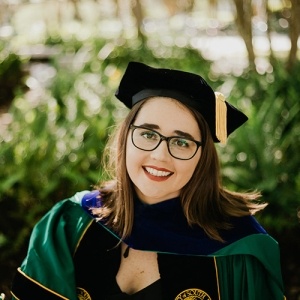
Fiona Kearns
University of California, San Diego, United States -
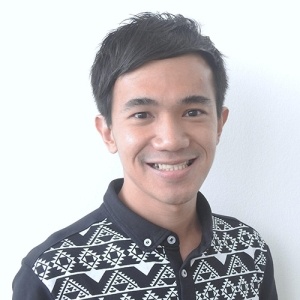
Kenry
Harvard University, United States -
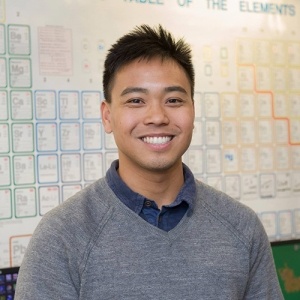
Croix Laconsay
University of Houston, United States -
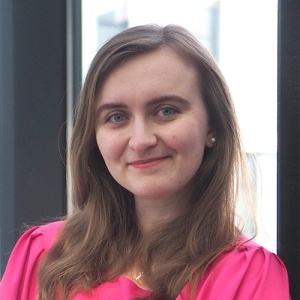
Krystyna Maslowska-Jarzyna
University of Warsaw, Poland -
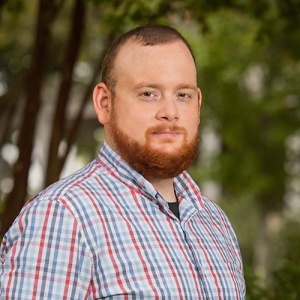
Kacey Garrett Ortiz
Auburn University, United States -
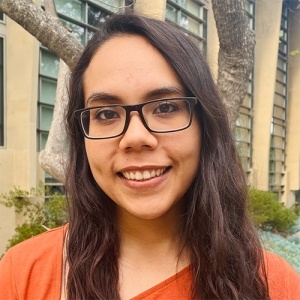
Melissa Ramirez
California Institute of Technology, United States -
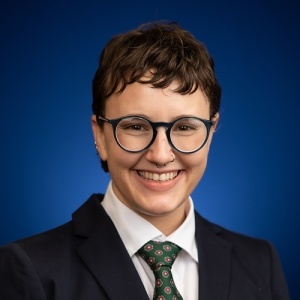
Bec Roldan
University of Michigan, United States -
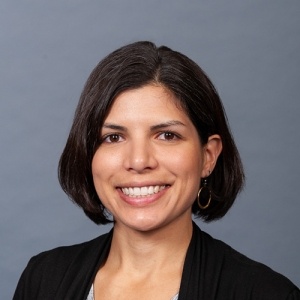
Monika A. Roy
University of Massachusetts Lowell, United States -
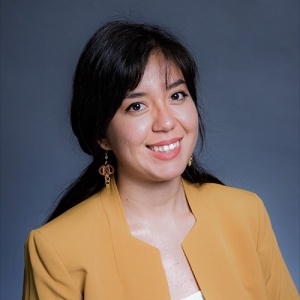
Karla Rosalia Sanchez Lievanos
University of Rochester, United States -

Sayoni Sarkar
Indian Institute of Technology Bombay, India -
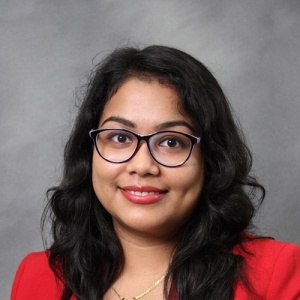
Susmita Sarkar
Purdue University, United States -
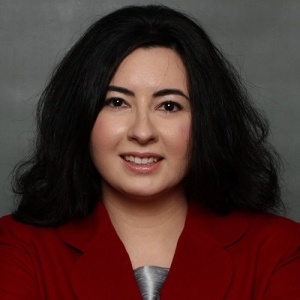
Monika Snowdon
University of Waterloo, Canada -
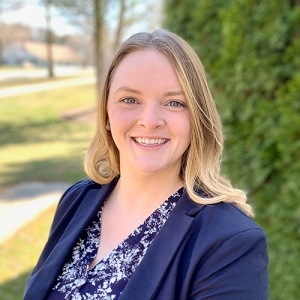
Amy Solinski
Pennsylvania State University, United States -
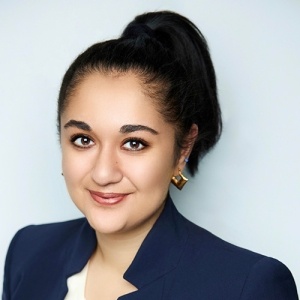
Zoha Syed
Northwestern University, United States -
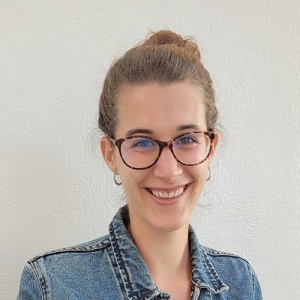
Azalea Uva
University of Toronto, Canada -
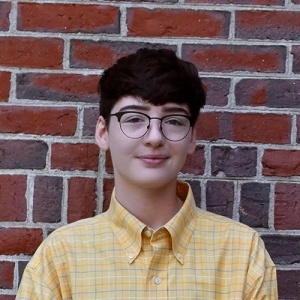
Cel Welch
Brown University, United States -
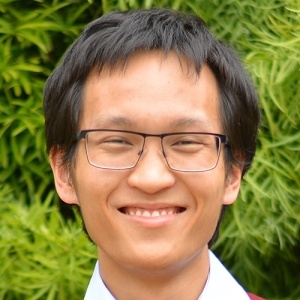
Stone Woo
Scripps Research, United States -
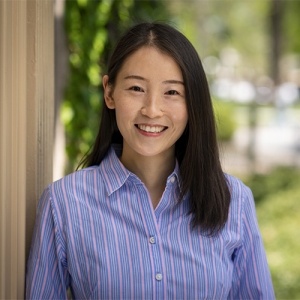
Xiaohui Xu
Princeton University, United States -
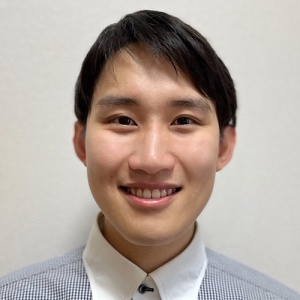
Hirogi Yokochi
Tokyo Institute of Technology, Japan -
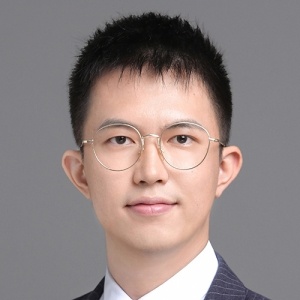
Jianyu Zhang
Hong Kong University of Science and Technology, China
Justin Lee Andrews
Justin is passionate about designing materials that address challenges related to sustainability and the energy transition. He is an inorganic chemist by training with expertise in the synthesis of metal-organic frameworks and solid-state materials. He most enjoys using soft X-ray absorption and emission spectroscopy to better understand the electronic structure of the materials that he makes. Justin holds a Ph.D. from Texas A&M University. While there, Justin developed a toolbox of topochemical transformations that greatly expanded accessible phase space in vanadium oxide systems. As a postdoctoral researcher at MIT, Justin is working to design metal-organic frameworks that conduct ions.
Sivani Baskaran
Sivani received her BSc from Trent University and M.Sc. and Ph.D. from the University of Toronto in environmental chemistry. Her doctoral research looked at methods for measuring and estimating the octanol-air partition ratio and its applications. During her Ph.D., she co-founded the Toronto Science Policy Network and led several science policy initiatives in Canada. Sivani is currently a postdoctoral researcher at the Norwegian Geotechnical Institute working on the ZeroPM project. Her research focuses on the identification and classification of persistent and mobile substances on the global chemical market based on their physical-chemical properties.
Isaiah Borne
Isaiah was born and raised in Marietta, Georgia. He earned his bachelor’s degree in chemical engineering from the Massachusetts Institute of Technology, where he was first exposed to energy and sustainability research. He earned his Ph.D. from the Georgia Institute of Technology, where he engineered porous organic cages and porous liquids for gas separations under the supervision of Dr. Christopher Jones and Dr. Ryan Lively. The NSF GRFP, Alfred P. Sloan Foundation, and National GEM Consortium supported his Ph.D. work. Isaiah is currently a postdoctoral research associate at the University of Liverpool, working with Dr. Andrew Cooper on developing porous materials for atmospheric water harvesting.
Andryj Borys
Andryj completed both his B.Sc. (2015) in forensic chemistry and a Ph.D. (2018) in main-group chemistry from the University of Kent (UK), the latter supervised by Dr. Ewan Clark. He was a postdoctoral researcher with Dr. Michael Cowley at the University of Edinburgh (UK), then with Profs. Thomas Baumgartner and Chris Caputo at York University (Canada) before joining the group of Prof. Eva Hevia at Universität Bern (Switzerland) in 2020. His current research explores the synthesis and catalytic applications of alkali-metal nickelates, with a focus on elucidating reaction mechanisms.
Kimberly Carter-Fenk
Kimberly is a Stanford Science Fellow in the Department of Chemistry where she studies ultrafast dynamics and proton transfer in deep eutectic solvents with Prof. Michael Fayer. She obtained a B.A. in chemistry from The College of Wooster followed by a Ph.D. in physical chemistry from The Ohio State University. As a graduate student in Prof. Heather Allen’s lab, she probed molecular organization at the air/water interface. Kimberly is passionate about mentoring, and she hopes to integrate the subdisciplines of physical chemistry and green chemistry in her career to advance sustainable climate solutions that prioritize safer chemistry and resource circularity.
Alison Sy-min Chang
Alison received a B.S. in chemistry, at Rhodes College in Memphis, TN in 2018. In Dr. Amanda Cook’s lab at the University of Oregon (UO), she develops and mechanistically elucidates both homogeneous and heterogeneous Ni-catalyzed organic reactions (e.g., hydrosilylation and alkene isomerization). Beyond research, Alison is heavily involved in underrepresented minority-serving student organizations such as Alliance for Diversity in Science and Engineering and A Community for Minorities in STEM at the UO. She also loves teaching the great curiosities of science to promote diversity in STEM through volunteering, and her absolute favorite hobby is building nature aquariums (i.e., aquascaping)!
Ty Christoff-Tempesta
Ty currently investigates the valorization of renewable, lignin-derivable molecules into molecular and polymeric systems as a postdoctoral fellow with Prof. Thomas H. Epps, III at the University of Delaware. Previously, Ty completed his B.S. in materials science and engineering at the University of Florida and Ph.D. in materials science and engineering/polymers and soft matter at MIT. His graduate research harnessed molecular design to produce ultra-robust small molecule assemblies with applications to pressing challenges in water treatment. Ty’s work has been recognized by the NSF Graduate Research Fellowship, Martin Society Fellowship for Sustainability, and Hugh Hampton Young Fellowship.
Eleonora Comeo
Eleonora received her M.Sc. degree in chemistry and pharmaceutical technologies at the Alma Mater Studiorum University of Bologna in 2016. She then pursued her Ph.D. degree in molecular pharmacology and drug discovery joint between the University of Nottingham and Monash University under the supervision of Profs. Barrie Kellam, Steve Hill, Peter Scammells, Lauren May and Michelle Halls. Her doctoral studies focused on the design, development and application of fluorescently-labelled molecules to study the biology of membrane proteins in living cells. Since 2021, Eleonora is a research fellow in medicinal chemistry working in Prof. Michael Stocks’ lab where she is designing and synthesizing new drug-like molecules and chemical probes targeting the P2Y2 receptor.
Roxana Coreas
Roxana, a postdoctoral fellow at the University of California, Berkeley, is dedicated to advancing the field of agricultural nanobiotechnologies. Her research objectives include understanding nanomaterial-biocoronas formed “in planta”, or within plant vascular tissues, to improve the efficacies of nanotechnologies in agriculture and paving the way for the development of safer and more effective nanomaterials that are crucial for achieving sustainable food production. Prior to her current position, she earned her Ph.D. in environmental toxicology from the University of California, Riverside. Her research focused on characterizing nanomaterial-biological interfaces to understand the health implications of nanomaterials in humans.
Cintya Dharmayanti
Cintya is a Ph.D. candidate and passionate science communicator at the University of South Australia. After graduating with a Bachelor of Pharmaceutical Science (Honours) in 2019, she pursued her interests in drug delivery research by undertaking a Ph.D. Now in the final year of her candidature, Cintya’s research focuses on the development of a pH-responsive polymeric nanoparticle drug carrier, and how it can be used to make chemotherapy safer and more effective. Outside the lab, Cintya is a writer for the Animate Your Science online science communication blog and guest author for SWIPE SciComm Magazine.
Katharina Ehrmann
Katharina is a postdoctoral fellow at TU Wien working on broadening the processing window of and rethinking the chemistry behind light-based additive manufacturing of polymers to obtain high-performance parts. She studied chemistry at the University of Innsbruck (Austria) and University of Edinburgh (UK). During her Ph.D. at TU Wien (Austria), Katharina developed self-reinforcing thermoplastic polyurethanes for tissue engineering applications. She then became a postdoctoral research fellow at the Queensland University of Technology (Australia), where she worked on wavelength-resolved photopolymer-networks. Katharina also is a member of the International Younger Network of Chemists, where she currently serves as Treasurer.
Ana Cristina Garcia Alvarez
Ana got a B.S. in chemistry at UAEMex working on lanthanides and main group chemistry, later got a M.Sc. and finally a Ph.D. at UNAM (México), working on the synthesis and characterization of cubane-type complexes for water oxidation, mimicking the OEC, under supervision of Prof. Ivan Castillo. She is currently a postdoc at the University of California, Irvine under the supervision of Prof. Jenny Yang, where she is exploring heterobimetallic systems for CO2 activation. Ana is interested in inorganic synthesis, mostly multimetallic systems, and electrochemistry.
Diego Gomez-Maldonado
Diego’s research focus is on the development of sustainable bio-based materials for advance applications. He is a postdoctoral associate at the Department of Chemical Engineering at Northeastern University researching materials for neural tissue engineering. He holds a Ph.D. in forest biomaterials from Auburn University, an M.Sc. in material design and engineering, and a B.S. in biological engineering both from Universidad Autonoma Metropolitana in Mexico, his home country. He has an expertise in biopolymer surface chemistry, characterization, and 3-D assembly. Equally important is his interest in diversity, equity, and inclusion and how this can help achieve a more sustainable future.
Mallory Green
Mallory received her B.S. in chemistry from Georgia Southern University, and her Ph.D. in chemistry from Emory University, both located in Georgia, in the USA. She is currently an Alexander von Humboldt postdoctoral research fellow working in the Molecular Physics Department of the Fritz Haber Institute of the Max Planck Society, located in Berlin, Germany. Her current research interest is the use of anion photoelectron spectroscopy to study chiral molecules in the gas-phase. Mallory wants to see her field grow to offer more sustainable solutions for chiral analysis, as well as, provide tools for investigations of previously-inaccessible chemical phenomena.
Bryan D. James
Bryan integrates materials, environmental, and biomedical engineering principles to design a healthier and cleaner future. He completed his B.A.Sc. at the University of Toronto and his Ph.D. at the University of Florida (UF) in materials science and engineering. Bryan’s research has spanned continents and fields, from investigating perfluorinated compounds at Air Liquide in Tsukuba, Japan, to sex-specific mechanobiology at UF in Gainesville, FL. Currently, Bryan is a postdoctoral researcher at the Woods Hole Oceanographic Institution in Woods Hole, MA investigating the fate, persistence, and toxicity of plastic in the ocean to inform the design of next-generation materials.
Fiona Kearns
Fiona is a postdoctoral scholar and computational biophysicist at the University of California San Diego, jointly advised by Rommie E. Amaro and J. Andrew McCammon. Her work centers on uncovering interactions between the SARS-CoV-2 spike protein and human host cell glycoproteins. She obtained her Ph.D. in computational chemistry from the University of South Florida advised by H. Lee Woodcock. Thus far, she has gathered a broad methodological repertoire including docking studies, molecular dynamics, quantum mechanical modeling, and enhanced sampling methods. She hopes to pursue an academic career in computational glycobiology, which she believes can unlock novel avenues for drug design.
Kenry
Kenry is currently a Postdoctoral Fellow in Bioengineering at the Mitragotri Laboratory at Harvard University and a Research Fellow in Imaging and Radiology at Dana-Farber Cancer Institute and Harvard Medical School. He received his Ph.D. in biomedical engineering from the National University of Singapore and BEng (First Class Honors) in electrical and electronic engineering from Nanyang Technological University, Singapore. His research focuses on rational design and engineering of functional bioinspired and biomimetic nanomaterials for the diagnosis and treatment of diseases, particularly cancer. Besides research, Kenry is passionate about technology commercialization and entrepreneurship.
Croix Laconsay
Croix is a postdoctoral researcher working with Professor Judy I. Wu at the University of Houston. He completed a Ph.D. in chemistry under the supervision of Professor Dean J. Tantillo at the University of California, Davis in 2022. His research broadly applies theoretical methods to interesting mechanistic puzzles in organic chemistry. Croix’s Ph.D. work developed mechanistic models for dirhodium-catalyzed reactions and heterolytic fragmentations. Currently, his interest is in organic photochemistry. Prior to his Ph.D., he worked with Professor Sason Shaik at The Hebrew University of Jerusalem as a Fulbright scholar. He holds a bachelor’s in chemistry from Marist College.
Krystyna Maslowska-Jarzyna
Krystyna was born in Ukraine and moved to Poland in 2012. She obtained a B.S. and M.S. in chemistry from the University of Warsaw and is currently finishing her Ph.D. at the same institution. Krystyna has been working in Supramolecular Chemistry Laboratory under the supervision of Dr. Michał Chmielewski. Her research focuses on developing small organic molecules that can transport biologically active anions across cell membranes. Throughout her career, Krystyna co-authored several peer-reviewed articles, completed two international internships, received numerous scientific awards, and actively participated in events popularizing science. Outside the lab, she enjoys traveling, reading, and running social media.
Kacey Garrett Ortiz
KC is a first-generation Latino student from Troy, Texas. He obtained a B.S. in chemistry from Texas A&M while working with Prof. Daniel Romo and Prof. David Powers. He worked in material and additive manufacturing research under Dr. David Battaglia and is currently a Ph.D. candidate at Auburn. Advised by Prof. Rashad Karimov, he has explored the development of transition metal catalyzed methodologies for heteroarene dearomatization and natural product synthesis. He has received awards such as the 2023 MBCF Fellowship, and the 2022 Corteva DELTA Grant. Outside the lab he enjoys gardening, gundams, games, and STEAM outreach.
Melissa Ramirez
Melissa is a first-generation Latina in chemistry. She obtained her bachelor’s degree in chemistry at the University of Pennsylvania and conducted undergraduate research in the laboratory of Professor Gary Molander. In 2021, Melissa received a Ph.D. in chemistry under the direction of Professors Ken Houk and Neil Garg at the University of California, Los Angeles where she worked as an NIH Ruth L. Kirschstein Fellow. She then joined the laboratory of Professor Brian Stoltz as a Caltech Presidential and NSF Ascend Postdoctoral Fellow. Melissa’s postdoctoral research focuses on reaction development and asymmetric catalysis using a combination of experiments and computations.
Bec Roldan
Bec (they/them) is an organic chemist and science communication enthusiast from rural Louisiana. They obtained a B.S. in chemistry with honors from Rhodes College, where they performed medicinal chemistry research under the guidance of Prof. Larryn Peterson. Currently, Roldan is a Ph.D. candidate at the University of Michigan-Ann Arbor in the lab of Prof. Corey Stephenson. During this time, they have investigated ways to leverage single electron chemistry in the synthesis of resveratrol natural products. They have also participated in several science communication endeavors, including running a podcast (My Fave Queer Chemist), publishing freelances pieces in Science and Chemistry and Engineering News, and presenting on inclusive science communication at national STEM conferences.
Monika A. Roy
Monika is a toxicologist and postdoctoral researcher under the supervision of Dr. Joel Tickner at the Sustainable Chemistry Catalyst at the University of Massachusetts (UMass) Lowell. She completed an MSPH at Tulane University and a Ph.D. at UMass Amherst, both in environmental health sciences. Her doctoral work focused on examining potential developmental toxicological effects of chemical ingredients in consumer products. Her current projects involve working with governments and other sectors on implementing safer chemical solutions that better protect public health and the environment and advance sustainable chemistry, informed substitution, chemicals management policy, and environmental justice.
Karla Rosalia Sanchez Lievanos
Karla received a B.S. in molecular design and nanochemistry from the Universidad Autónoma del Estado de Morelos in 2018. She is currently a Ph.D. candidate in materials chemistry at the University of Rochester. Her research, supervised by Professor Kathryn Knowles, focuses on the design of nanoscale semiconductor materials for the degradation of contaminants in water. Her primary research goal is to utilize molecular and materials chemistry strategies to develop safe and high-performance technologies for environmental remediation. She enjoys seeing herself as a proactive leader and being able to demonstrate to the public that we all belong at the scientific table.
Sayoni Sarkar
Sayoni is a recipient of the prestigious Prime Minister’s Research Fellowship (2019), pursuing doctoral (Ph.D.) studies at the Indian Institute of Technology-Bombay. She received her B. Tech in metallurgical and materials engineering in 2019 from the National Institute of Technology Tiruchirappalli (India). Her passion for uncovering nature's mysteries steers her research in developing novel biofunctional nanostructures for low-cost cancer theranostics, utilizing flow chemistry platforms to accomplish the sustainable development goals. Sayoni aspires to make a meaningful impact by leading the lab-to-clinic translation of nano-formulations to democratize the landscape of cancer therapeutics and allied healthcare eventually making it affordable for all.
Susmita Sarkar
Susmita is a Bilsland Dissertation Fellow and Ph.D. candidate in the School of Mechanical Engineering at Purdue University. Her research focuses on exploring material science, chemistry, and mechanics to design and manufacture next-generation energy storage devices and improving the performance, reliability, and yield of the existing battery chemistries. She has received numerous awards, including Hommert Engineering Excellence Fellowship, Hillberry Graduate Scholarship, Outstanding Service Award, and was selected as an MIT Rising Star in Mechanical Engineering. She is the founding president of the ECS student chapter at Purdue University, and under her leadership, they received the Chapter of Excellence Award.
Monika Snowdon
Monika obtained her Ph.D. in chemistry and nanotechnology from the University of Waterloo. Part of her doctoral research was in Japan, supervised by Dr. Dai-Ming Tang at the National Institute for Material Science. Her focus there was on carbon nanotube transistors. Monika holds a M.Sc. in organosulfur synthesis and a B.Sc. in nanoscience from the University of Guelph. Currently, she is a postdoctoral researcher in mechanical engineering at Prof. Norman Zhou's lab as part of the Center for Advanced Materials Joining, University of Waterloo. She hosts the IMNano podcast, making scientific research accessible to those without a STEM background.
Amy Solinski
Amy is currently an NIH postdoctoral fellow at the Pennsylvania State University working with Dr. Squire Booker on the characterization of radical S-denosylmethionine enzymes with unknown biological functions. She completed her Ph.D. at Emory University in 2020 in the laboratory of Dr. William Wuest. Her graduate work focused on the synthesis of natural product derivatives and the investigation of their antimicrobial properties. Before Emory, she received a B.S. in chemistry at The College of New Jersey in 2015, where she was first exposed to scientific research under the advisement of Dr. David Hunt.
Zoha Syed
Zoha graduated from the University of Washington, Seattle (UW) in 2017 with a B.S. in chemistry and a B.A. in biochemistry. At UW, her research focused on iridium-catalyzed C–H functionalization. Zoha was then a researcher from 2017 to 2018 in the catalysis science program at Argonne National Laboratory (ANL). There, she studied supported organometallic complexes on metal oxides as heterogeneous catalysts. Zoha is currently a 5th year chemistry Ph.D. candidate and NSF graduate research fellow at Northwestern University and a visiting graduate student at ANL. Her research applies the principles of organometallic chemistry to nontraditional materials.
Azalea Uva
Azalea is a Ph.D. student at the University of Toronto in the group of Prof. Helen Tran. Her research focuses on the synthesis of degradable and conjugated polymers from carotenoid molecules for use in sustainable electronics. She earned her B.Sc. in biochemistry from Concordia University in Montreal, Canada. Azalea is passionate about STEM outreach and advocating for inclusivity within the chemical sciences.
Cel Welch
Cel is a biomedical engineering Ph.D. candidate from Brown University. Cel combines engineering principles like microfluidics, nanoengineering, and transport phenomena with biosensors and bioelectronics in order to create improved, integrated “fluidic-electronic” devices. Cel’s thesis focused on developing new physical mechanisms and improved devices for cellular manipulation and sensing. Cel is now working on designing more robust wearables and biosensors that are better equipped for use in real-world medical monitoring applications.
Stone Woo
Stone was born and raised in Sydney, Australia and received a Bachelor of Science (Advanced) (Honours) with the University Medal at the University of Sydney in 2019, working with Prof. Christopher S. P. McErlean on the synthesis of the sunflower hormone heliolactone. Currently, he is a Ph.D. candidate, American Australian Association Scholar and Bristol Myers Squibb Graduate Fellow with Prof. Ryan A. Shenvi at Scripps Research. His Ph.D. work has focused on developing chemistry to better access the chemical space surrounding alkaloids from psychoactive Galbulimima rainforest bark, enabling the identification of new opioid receptor ligands.
Xiaohui Xu
Xiaohui is currently a Presidential Postdoctoral Fellow in chemical and biological engineering at Princeton University, working with Prof. Rodney Priestley. Prior to Princeton, she earned her Ph.D. in environmental engineering at Chang’an University in China and undertook thesis research as a visiting graduate student at Helmholtz-Zentrum Berlin für Materialien und Energie (HZB) in Germany. Her current research focus is on the synthesis of stimuli-responsive hydrogels, and their applications for sustainable environmental remediation. Xiaohui is interested in the design of functional soft materials by tunably altering the microstructure, mechanical property, stimuli-response.
Hirogi Yokochi
Hirogi is currently a Ph.D. candidate working with Prof. Hideyuki Otsuka in the Department of Chemical Science and Engineering at Tokyo Institute of Technology (Tokyo Tech) and is a JSPS Young Scientist Fellow. He completed both his B.Eng. and M.Eng. degrees at the Tokyo Tech six months ahead of schedule, under the supervision of Prof. Hideyuki Otsuka and Dr. Daisuke Aoki. He also worked with Prof. Yan Xia at Stanford University as a visiting student for 6-month during his Ph.D. studies. His graduate research focuses on controlling the primary structure of polymers using dynamic covalent bonds and creating their functions.
Jianyu Zhang
Jianyu is a postdoctoral fellow at The Hong Kong University of Science and Technology (HKUST). He obtained his B.Sc. in chemistry from Sun Yat-sen University (China) in 2019, where he was admitted to The Top Students in Basic Disciplines Cultivation Plan to begin research training. After graduation, he joined Professor Ben Zhong Tang’s group at HKUST and worked on photophysical properties and mechanisms of aggregation-induced emission (AIE) materials. In 2022, he obtained his Ph.D. degree in chemistry from HKUST. His research interests focus on photochemistry, photophysics, though-space interactions, clusteroluminescence, dynamic chemistry, and computational chemistry for excited-state evolutions.
